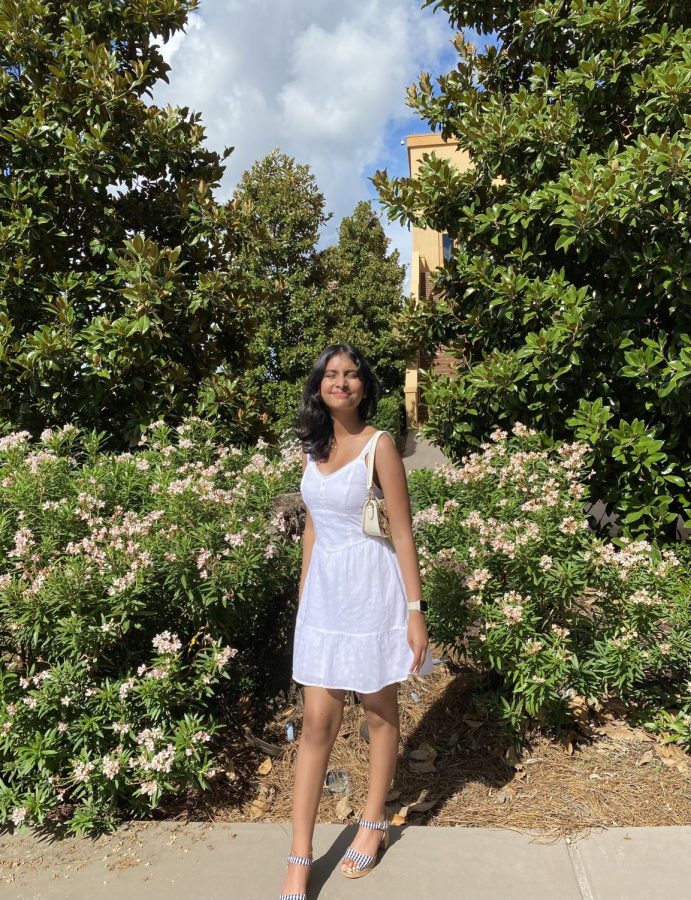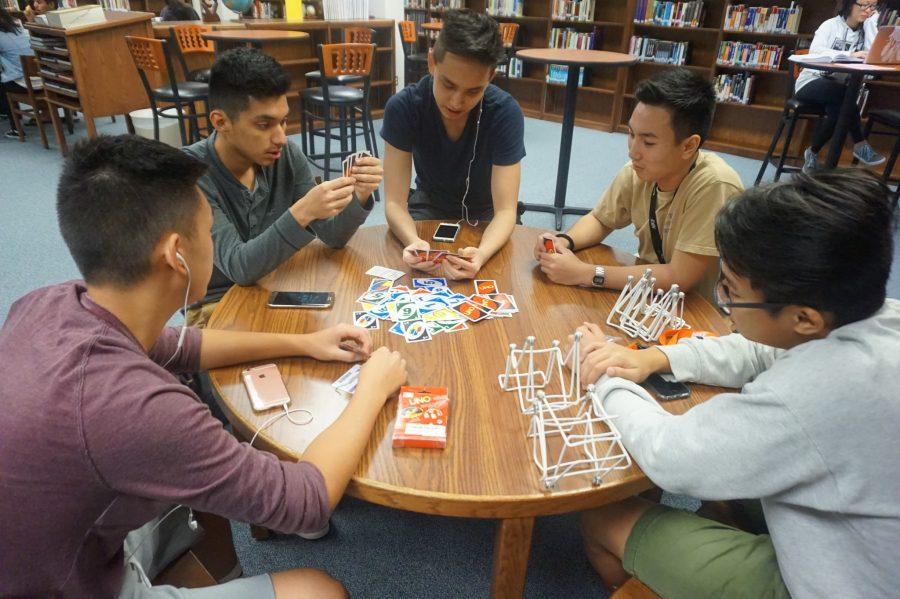Doris Curry, the Future Business Leader of America’s sponsor, listened with only half an ear. She stared into the distance, watching as the Hot Cheetos and Hot Funyuns bags dissipates into the air. The words flow in only to fly out almost immediately after. She would catch up on the reports later; right now, shock had invaded her body. Only one thought dominated her mind throughout the staff meeting: she needs to find an alternative to FBLA’s snack sales.
The passage of the new school nutritional guidelines has banned the majority of the chips and drinks usually sold for snack fundraisers. Clubs have been rushing for alternatives, and opinions of its impact vary widely.
Curry believes that the new guidelines hit Kerr the hardest because of its small size and large number of clubs.
“We have so many organizations trying to do the same thing we are: trying to raise money,” she said.“It’s just really hard when we have so many kids involved in so many organizations, and they get burned out on fundraising.”
Antoinette Maness-Richards, National Honor Society sponsor, agrees. The implementations could potentially take away $1000 from her club alone. However, she also considers the hidden implications for her Cub Camp.
“That’s a lot of money to try to recover in a different way,” she said. “In terms of what we’ve established for the freshmen and how we deal with the freshmen and welcoming them to Kerr and giving a first positive experience. So, in that way, it really hurts.”
For Speech and Debate sponsor, Derek Davis, the worry lays in the effects of the guidelines on members’ participation.
“The point of doing fundraisers is to help the kids subsidize to go to tournaments and not have to pay full fees,” he said. “[What] all our fundraising is trying to do is to support kids to be active in Speech and not have a financial burden.”
Janine Hughes, National Art Honor Society sponsor, is of the same opinion. The funds all go back to helping her club members and she refuses to jeopardize their education.
“I use them for field trips, so that my kids can be exposed to art galleries and art museums here in Houston,” she said. “I feel strongly about taking my kids on these field trips, and I don’t think that these kids should have to pay for it.”
Despite the negative impact of the guidelines, Physical Education Coach Mary Bailey believes that it will help the students’ health in the long run.
“[There’s a] shift occurring in society because of the sickness that is going on younger and younger and younger,” she said. “It’s not lack of exercise [because] you can’t compensate for the amount of calories that we’re feeding kids by going out and jogging a couple miles. So, we’re going to have to make changes, we’re going to have to look out for the kids.”
Curry concurs that there exists a problem with children’s health, but holds that these changes should be restricted to elementary and middle school.
“If you’ve already not made those healthy choices by high school, we’re not changing you,” Curry said. “It’s the truth. High school is not the place to have it.”
Davis maintains that eliminating fatty snacks at school will not supplement the fatty snacks the students can buy at a store or fast food chain.
“[Students] have the resources to get whatever they want,” he said.“They don’t have to just get it here. They just drive to McDonalds during lunch and get them. So, it’s kind of naive to think that doing this would make a difference in high school.”
Bailey acknowledges that the students can obtain those chips and sodas whenever and wherever they want, but steadfastly defends that the new guidelines is a step towards the big answer. The next step would be education in nutrition.
“We’re going to have to educate kids and adults of the goods that they need to eat and the direction that they need to go,” she said. “Give them the true science, not the watered-down politically correct view of food that it doesn’t play much of a big role.”
Fortunately, as the problems and opinions build up, so have the solutions.
Hughes plans to stay away from snacks for her fundraisers. Instead, her club will paint parking spots to raise money.
“So, a student or a teacher can buy a parking space for a year and then we’ll paint it with a little design,” she said.“[It’s] $35 for students, $25 for teachers.”
Due to flagging Chick-Fil-A sales, Class President Vinh Chu has also decided to change his focus to things other than food, at least, during school hours.
“[We’ll] try to do those nights, like last year’s Double Daves’ Pizza,” he said. “Those foods, people will buy, and it’s in those out-of-school places. We have our assigned [after school snack sales] weeks, too, and we will use them.”
FBLA President Jimmy Oquendo wants to take advantage of a nearby resource: Kona Ice.
“We’ll just ask [Kona Ice] to come to events that we think kids would want Kona Ice,” Oquendo said. “And we end up getting 20 percent of the profit made. We were thinking of doing it at the homecoming game if they want it in November, and later on, during the summer.”
However, Speech and Debate Treasurer Jose Ramos determinedly sticks with his club’s traditional form of fundraising. In his persistence, he has discovered some surprising snacks that pass the requirements.
“The USDA doesn’t allow for certain sugar contents, too many trans fats, or too many carbohydrates,” Ramos said. “[But, you can sell] things such as Diet Dr. Pepper, Diet Coke, Diet Snapple, fruit snacks, baked Cheetos – things along those lines.”
In general, snacks made primarily from whole grains, fruits, or vegetables (of which potato does not count) will most likely meet the guidelines.
The Speech and Debate snacks sales have been running smoothly, but Curry still feels that it will not be enough. In her opinion, the loss of the old snacks is too big to overcome.
“ We’ll never recover from it,” she said. “It was nothing for [FBLA] to earn $8000-$10,000 a year on snack sales. But now, we’re lucky if we earn $3000 a year.”
However, only experimentation and application will reveal in time how much success the new fundraising ideas bring.
“This is the first time that we’ve done this,” Davis said. “Every time you start something new, it’s going to have a learning curve.”


